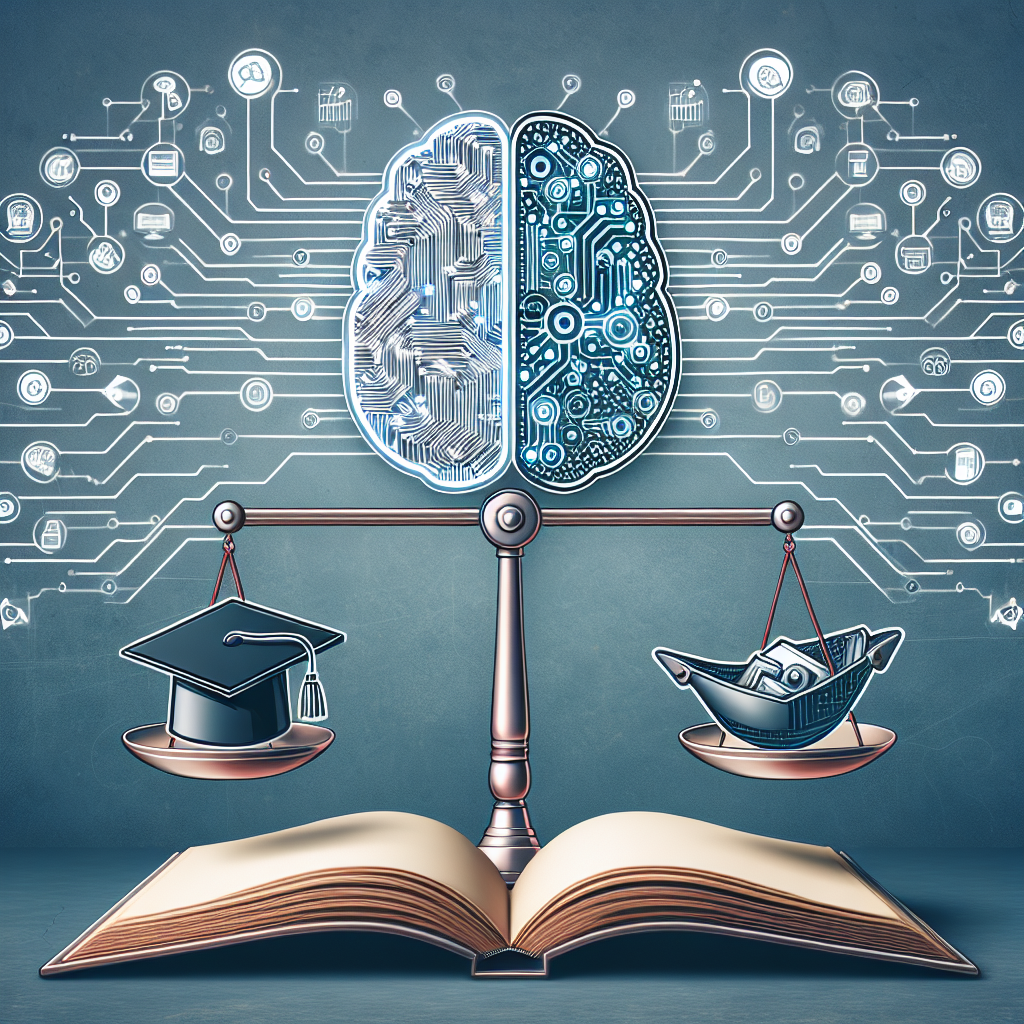The Impact of AI Democratization on Education
Artificial intelligence (AI) has been a major disruptor in various industries, including education. AI democratization refers to the accessibility and affordability of AI tools and technologies to a wider audience, beyond just large corporations and tech giants. This democratization of AI has the potential to revolutionize education by making personalized learning experiences more accessible to students, improving teacher efficiency, and enhancing overall educational outcomes.
In recent years, AI has been increasingly integrated into educational tools and platforms, offering a wide range of benefits to both students and educators. With AI democratization, these tools are becoming more affordable and accessible, allowing even smaller educational institutions and individual educators to leverage AI technologies to enhance teaching and learning experiences.
One of the key impacts of AI democratization on education is the ability to provide personalized learning experiences to students. AI algorithms can analyze large amounts of data to identify individual learning styles, preferences, and areas of improvement for each student. This allows educators to tailor learning materials and activities to meet the specific needs of each student, leading to improved learning outcomes and increased student engagement.
Furthermore, AI-powered educational tools can provide real-time feedback to students, helping them track their progress and make adjustments to their learning strategies as needed. This continuous feedback loop can help students stay motivated and focused on their learning goals, leading to better retention and understanding of the material.
In addition to personalized learning, AI democratization can also improve teacher efficiency by automating routine tasks such as grading assignments, creating lesson plans, and providing feedback to students. This allows educators to focus more on interacting with students, providing mentorship, and fostering critical thinking skills, rather than spending time on administrative tasks.
Moreover, AI technologies can help identify at-risk students early on by analyzing patterns in student performance and behavior. Educators can then intervene and provide additional support to these students, helping them stay on track and succeed in their academic pursuits.
Overall, the democratization of AI in education has the potential to level the playing field for students from diverse backgrounds and socioeconomic statuses by providing access to high-quality educational resources and personalized learning experiences. This can help bridge the gap in educational outcomes and improve overall student achievement.
FAQs:
Q: How is AI democratization different from traditional AI technologies?
A: Traditional AI technologies were often expensive and complex, requiring specialized expertise to develop and implement. AI democratization, on the other hand, aims to make AI tools and technologies more accessible and affordable to a wider audience, including smaller educational institutions and individual educators.
Q: What are some examples of AI-powered educational tools?
A: Some examples of AI-powered educational tools include adaptive learning platforms, virtual tutors, personalized learning apps, and automated grading systems. These tools use AI algorithms to analyze data and provide personalized learning experiences to students.
Q: How can AI technologies improve teacher efficiency?
A: AI technologies can automate routine tasks such as grading assignments, creating lesson plans, and providing feedback to students, freeing up educators to focus more on interacting with students and fostering critical thinking skills.
Q: What are some potential challenges of AI democratization in education?
A: Some potential challenges of AI democratization in education include data privacy concerns, ethical implications of using AI algorithms to make decisions about students, and the need for educators to receive training on how to effectively integrate AI technologies into their teaching practices.
Q: How can educators leverage AI technologies to enhance teaching and learning experiences?
A: Educators can leverage AI technologies to provide personalized learning experiences to students, automate routine tasks, identify at-risk students early on, and improve overall educational outcomes. By integrating AI tools and technologies into their teaching practices, educators can enhance student engagement, retention, and understanding of the material.

